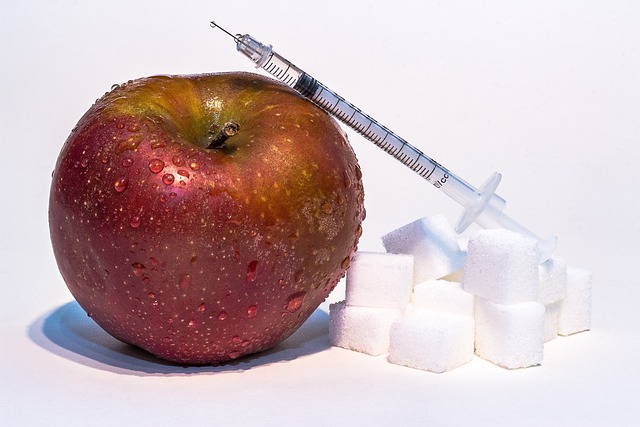In today’s fast-paced world, processed foods have become a staple in many households. From pre-packaged meals to sugary snacks and ready-to-eat frozen dinners, these convenient options dominate grocery store shelves and restaurant menus. While they offer undeniable convenience, the widespread consumption of processed foods has raised serious concerns about their impact on health. Understanding how these foods affect our bodies is crucial for making informed dietary choices and maintaining long-term well-being.
What Are Processed Foods?
Processed foods are any food items that have been altered from their natural state during preparation or packaging. This includes everything from minimally processed products like canned vegetables and bagged salads to heavily processed items such as chips, sodas, and microwaveable meals. The degree of processing varies, but what most heavily processed foods share in common is their high levels of added sugars, unhealthy fats, sodium, and artificial additives.
While not all processed foods are inherently harmful—some, like fortified cereals or yogurt, can even provide nutritional benefits—the majority of ultra-processed foods are designed for taste and shelf life rather than health. These highly engineered products often lack essential nutrients and contribute to a host of health issues when consumed excessively.
The Negative Health Impacts of Processed Foods
1. Increased Risk of Obesity
One of the most significant consequences of consuming processed foods is weight gain. Many of these products are calorie-dense but nutrient-poor, meaning they pack a lot of energy without providing the vitamins, minerals, or fiber needed to keep you full and satisfied. Additionally, the high levels of sugar, refined carbohydrates, and unhealthy fats found in processed foods can disrupt hunger signals, leading to overeating and eventual weight gain.
2. Higher Risk of Chronic Diseases
Regular consumption of processed foods has been linked to an increased risk of chronic conditions such as type 2 diabetes, heart disease, and hypertension. For example:
- Heart Disease: Processed meats like bacon, sausages, and deli meats are high in saturated fats and sodium, both of which contribute to elevated blood pressure and cholesterol levels.
- Diabetes: Sugary beverages and snacks cause rapid spikes in blood sugar levels, increasing insulin resistance over time.
- Hypertension: The excessive salt content in processed foods is a major contributor to high blood pressure, a key risk factor for cardiovascular problems.
3. Gut Health Disruption
The gut microbiome plays a vital role in digestion, immunity, and overall health. Unfortunately, processed foods often contain additives, preservatives, and artificial sweeteners that can harm beneficial gut bacteria. A diet high in ultra-processed foods may lead to imbalances in the gut microbiota, potentially contributing to digestive disorders, inflammation, and weakened immune function.
4. Nutrient Deficiencies
Because processed foods are typically stripped of their natural nutrients during manufacturing, relying on them as a primary food source can result in deficiencies. For instance, refined grains lose much of their fiber, vitamins, and minerals during processing. Over time, this can lead to inadequate intake of essential nutrients like iron, magnesium, and vitamin B12, impacting energy levels, cognitive function, and overall vitality.
5. Addiction-Like Eating Patterns
Many processed foods are specifically engineered to be hyper-palatable, combining sugar, fat, and salt in ways that trigger pleasure centers in the brain. This can create addictive-like eating behaviors, where individuals crave these foods despite knowing their negative effects. Breaking free from this cycle can be challenging and may require conscious effort and lifestyle changes.
The Role of Marketing and Accessibility
The prevalence of processed foods isn’t just a matter of personal choice—it’s also driven by aggressive marketing strategies and systemic factors. Food companies invest billions in advertising campaigns that target children, low-income communities, and busy professionals, promoting their products as quick, affordable solutions. Meanwhile, healthier whole foods are often less accessible due to higher costs and limited availability in certain areas, creating “food deserts” where nutritious options are scarce.
This environment makes it difficult for many people to prioritize healthy eating, perpetuating cycles of poor nutrition and related health issues. Addressing these disparities requires policy changes, education initiatives, and community support to make healthier choices more accessible and appealing.
How to Minimize the Impact of Processed Foods
While completely eliminating processed foods from your diet may not be realistic—or necessary—there are steps you can take to reduce their negative impact:
1. Read Labels Carefully
Pay attention to ingredient lists and nutrition facts. Avoid products with long lists of unrecognizable ingredients, excessive sugar, or high sodium content. Opt for minimally processed options whenever possible.
2. Cook at Home More Often
Preparing meals at home allows you to control what goes into your food. Focus on using fresh, whole ingredients like fruits, vegetables, lean proteins, and whole grains. Batch cooking and meal prepping can save time while reducing reliance on convenience foods.
3. Choose Healthier Alternatives
Swap out heavily processed snacks for healthier options like nuts, seeds, or fresh fruit. Instead of sugary drinks, opt for water, herbal teas, or sparkling water with a splash of citrus.
4. Practice Moderation
If you enjoy certain processed foods, there’s no need to eliminate them entirely. Practice moderation by limiting portion sizes and frequency. For example, treat yourself to a small serving of ice cream occasionally rather than indulging daily.
5. Educate Yourself and Others
Understanding the effects of processed foods empowers you to make better choices. Share this knowledge with family and friends to create a supportive environment for healthier habits.

Leave a Reply